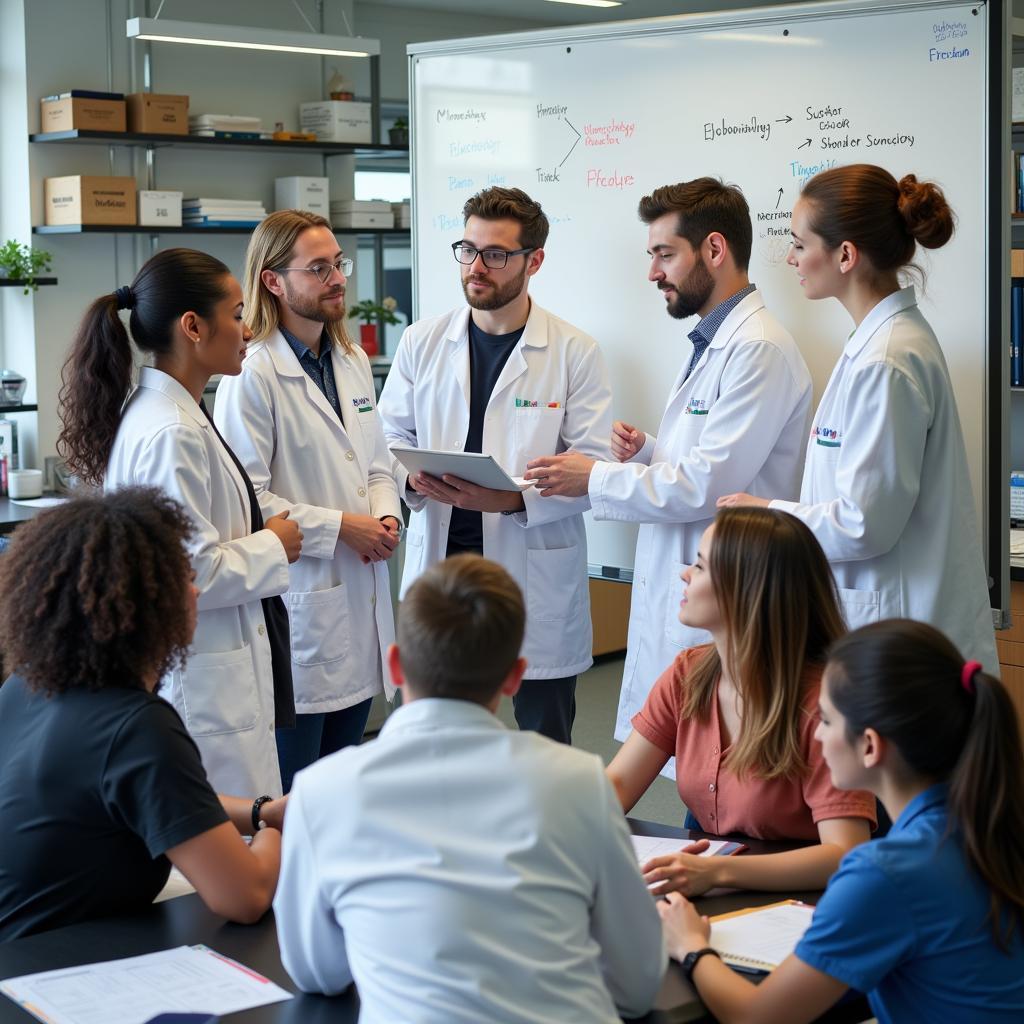The Society for Glycobiology is dedicated to advancing the understanding of glycoscience, a field that explores the intricate world of sugars and their impact on biological systems. Often underestimated, these complex molecules play crucial roles in everything from immunity to disease progression. The society serves as a global hub, connecting researchers, clinicians, and industry professionals passionate about unraveling the mysteries of glycobiology.
 Scientists gather at the Society for Glycobiology annual meeting
Scientists gather at the Society for Glycobiology annual meeting
Unlocking the Secrets of Glycans: A Complex World Awaits
Glycans, also known as carbohydrates or sugars, are essential biomolecules found in all living organisms. They form diverse structures with a wide range of biological functions. From mediating cell-to-cell communication to influencing protein folding and stability, glycans are involved in countless biological processes.
The Role of the Society in Advancing Glycobiology
The Society for Glycobiology plays a vital role in fostering collaboration and knowledge sharing within the field. Through its annual meetings, publications, and online resources, the society provides a platform for researchers to:
- Disseminate Cutting-Edge Research: The society’s annual meeting and official journal offer avenues for scientists to present their latest findings and engage in critical discussions about emerging trends in glycobiology.
- Facilitate Collaborations: By connecting researchers from various disciplines and sectors, the society promotes collaborative efforts that drive innovation and accelerate discoveries in glycoscience.
- Support Early-Career Scientists: Recognizing the importance of nurturing future generations of glycobiology experts, the society provides travel grants, awards, and mentorship opportunities to support the training and career development of young scientists.
 Cutting-edge technology used in glycobiology research
Cutting-edge technology used in glycobiology research
The Impact of Glycobiology on Human Health
Understanding the intricate roles of glycans in health and disease has far-reaching implications for medical advancements. Glycobiology research has the potential to:
- Develop Novel Therapeutics: By targeting specific glycan interactions, scientists aim to develop innovative drugs and therapies for a wide range of diseases, including cancer, infectious diseases, and autoimmune disorders.
- Improve Diagnostic Tools: Glycans serve as biomarkers for various diseases, offering potential for earlier and more accurate diagnosis. The development of glycan-based diagnostic tools holds immense promise for improving patient care.
- Enhance Vaccine Development: Glycosylation, the process of adding glycans to proteins, plays a critical role in the efficacy of vaccines. By understanding these processes, scientists can design more effective vaccines against infectious diseases.
Pathway Society Inc: Fostering Collaboration in Related Fields
While the Society for Glycobiology focuses specifically on glycoscience, other organizations like Pathway Society Inc contribute to broader scientific advancements that intersect with glycobiology. These collaborations across disciplines are crucial for addressing complex biological questions and translating research findings into tangible solutions for improving human health.
 Scientists working together on a project related to glycobiology
Scientists working together on a project related to glycobiology
Conclusion
The Society for Glycobiology plays a pivotal role in advancing our understanding of glycans and their impact on human health. By fostering collaboration, supporting research, and disseminating knowledge, the society contributes to the development of innovative solutions for some of the world’s most pressing health challenges. As we delve deeper into the fascinating world of glycobiology, we can anticipate groundbreaking discoveries that will shape the future of medicine and improve lives globally.